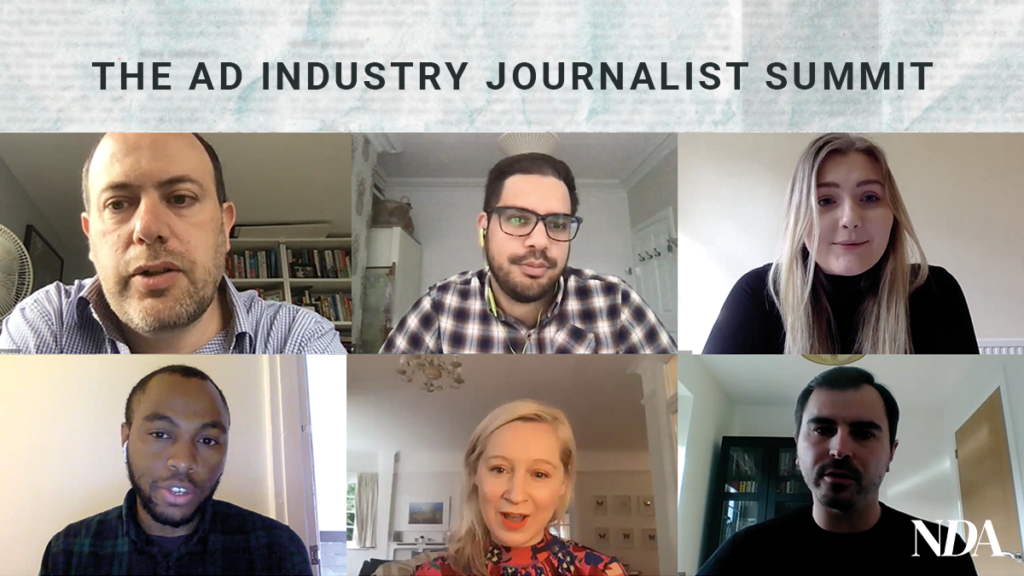The NDA Journalism in the Marketing and Ad Industry Roundtable Summit brought together our industry’s leading journalists to discuss the vital role journalism plays in both supporting and holding to account our industry. We’ll be running a series of articles over the next week generated by the debate.
Journalism matters, as Her Majesty Queen Elizabeth this month attested. But does the marketing industry value real media enough – and what can we do to raise its profile and stress its importance?
The future of journalism has long been debated as advertising revenues have continued to diminish and publishers are forced to maximise print and online subscriptions alongside other revenue streams in order to continue to keep the lights on.
The Queen says “having trusted, reliable sources of information, particularly at a time when there are so many sources competing for our attention, is vital”. Her statement of support to national and regional papers comes as part of this month’s Journalism Matters campaign – but it equally applies to the specialist and trade press.
We wanted to discuss some of the trends that leading journalists are seeing within their own companies and their peers as they report on the sector. So New Digital Age partnered with Teads, whose mission is funding quality journalism, to curate a panel for just such a conversation.
Moderated by Editor Justin Pearse, the session included Digiday Brands Editor Seb Joseph, Creativebrief’s Editorial Director Nicola Kemp, Campaign Editor-In-Chief Gideon Spanier, The Drum’s Head of Content, Cameron Clarke and Mediatel News’s News Editor Michaela Jefferson, and Teads Marketing Director Graham Alexander.
The sector is well served by its press – but do we take it for granted?
There is no shortage of trade publications writing about the advertising sector on a daily basis; from internationally recognised industry brand names such as AdAge, Adweek, Campaign, The Drum, Digiday and many, many more – there can be no doubt of the scrutiny and insights produced by reporters for marketing professionals. But is all this content valued enough, and can we afford to keep producing it?
Seb Joseph, Digiday’s UK brands editor, says he believed the media and marketing industry did value the role of independent journalism in the sector but questioned how much. “Do they value it enough to pay for it, to subscribe? Advertising isn’t a sustainable model for a lot of publishers and that’s been abundantly evident since March,” he says.
Cameron Clarke, head of content at The Drum, echoes those points. “The fact that we do have such a diverse media even within our own industry shows that they do [care], but there is maybe a lack of understanding in general as to what is required to produce brilliant journalism, whether that is about media and marketing or consumer.”
He says that it was challenging to produce a great magazine or website, which needed “costly” time, resource, people and experience. “That’s the bit we need to do a better job of educating people about. Broadly, a lot of people don’t understand the mechanics of what we do and how it works.”
Both Nicola Kemp, editorial director of marketing platform Creativebrief and its in-house publication Bite, and Michaela Jefferson, news editor of Mediatel News, felt less dependence on advertising revenues but agreed on the need for vibrant and well-funded independent press.
A healthy, competitive and funded trade press is vital for vibrancy
Kemp, who previously worked for Campaign and Marketing (the latter now folded into the former) magazines, said: “Both professionally and personally I think we should pay for content. We are lucky to have so much competition in this industry, because when you don’t have competitors it can be turgid and not very vibrant.”
She argues the need for editorial people to be more open about the need for things to be paid for, whether through advertising, subscriptions or branded content.
Jefferson points to the “extremely complex industry” she operates in. “Having only been doing this for two years, I am nowhere near to getting my head around it and I don’t think a lot of people who have been doing this for 20 years have got their heads around it either.
“If they did we wouldn’t be facing some of the problems we are facing now around things like trust in advertising. That is why we are valued and what the point of journalism in this industry is, to try and answer some of those questions, help set the agenda and assist readers in making the right decisions.”









